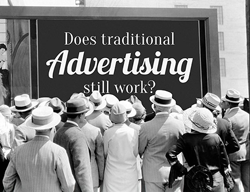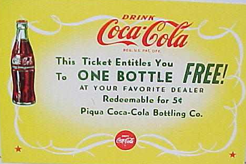 In my piece on branding on Midlands 103 Radio last Friday, I mentioned the importance of harnessing the science of persuasion to Claire. Digital Marketing online can be a bit fluffy so I referred to a Harvard Business Review report called “Harnessing the Power of Persuasion” by Robert Cialdini. The report refers to those lucky few marketers/branders who seem to be able to magically capture an audience. We all know them, they’re charismatic, we love being in their company. Before we know it we want to do them a favour by buying their latest product. They hold people enthralled.
In my piece on branding on Midlands 103 Radio last Friday, I mentioned the importance of harnessing the science of persuasion to Claire. Digital Marketing online can be a bit fluffy so I referred to a Harvard Business Review report called “Harnessing the Power of Persuasion” by Robert Cialdini. The report refers to those lucky few marketers/branders who seem to be able to magically capture an audience. We all know them, they’re charismatic, we love being in their company. Before we know it we want to do them a favour by buying their latest product. They hold people enthralled.
 These marketers are super talented but often cannot explain to others in the business how they do what they do. This makes it difficult for the business to replicate the success of the “talented one”. Imagine if you could duplicate the success of this super talent. How big could your business grow? As business owners we are often woefully inept at delegating, because nobody can “do it like we do it”.
These marketers are super talented but often cannot explain to others in the business how they do what they do. This makes it difficult for the business to replicate the success of the “talented one”. Imagine if you could duplicate the success of this super talent. How big could your business grow? As business owners we are often woefully inept at delegating, because nobody can “do it like we do it”.
Well, Harvard have the answer. For the past 5 decades behavioural scientists have been studying how people “concede, comply or change”. These experiments revealed that persuasion works by appealing to a limited set of of deeply rooted human needs. This means that Persuasion can be taught and applied as it is governed by a set of 6 principles.
The Principle of Liking
As I said on air, this does not refer to the “liking on Facebook”. It relates to that human element when you like someone, you want to please them, to take care of them, or do them a favour. Those businesses using the business model of home parties explain this principle perfectly. We all buy more (or at least something) at the party because we are emotionally attached to the hostess. We like her/him.
The Principle of Reciprocity
This is one that we are always stressing here. “Give what you want to receive”. Those of you who have attended any of our social media training workshops will know that those who are good on social media, are naturally giving and sharing. They don’t just talk about themselves. If you want to receive “good vibes”, you need to send out “good vibes”. In daily life, if you smile at someone it’s impossible for them not to smile back (try it, it’s amazing). If you give someone a mention on social media, they will feel honour bound to mention you back or do you a favour when they can.
 The Principle of Social Follow
The Principle of Social Follow
This has nothing to do with Twitter! Human beings rely on those around them for cues on what to do or how to think. Persuasion can be extremely effective when it comes from peers. Amazon use this tactic to sell you more books. Testimonials are an excellent way for you to apply this Principle to your business. Case studies can also be used as testimonials. They work best when a prospective customer and an existing customer share the same set of circumstances. You could show how you solved that problem for client A through the case study. This obviously means you can solve it for client B.
The Principle of Consistency
Apart from getting people to bond with you they also need to commit to your product/service. We can use good turns to best effect here, or you could try winning a public commitment from the client. Cialdinis team found that once people take a stand, most of them will stick to that point of view. In 1983 Israeli researchers (Personality and Social Psychology Bulletin) reported asking half the residents in a large complex if they would support a petition favouring a recreation centre for the handicapped. Everyone signed. Two weeks later they were asked to contribute to the cause. 92% of those who had commited to the cause (signed the petition) gave money.
The Principle of Authority
People will defer to experts. This means that you must not assume your expertise is self evident. Human beings are lazy by nature and do not always “connect the dots”. Expose your expertise. Make sure you educate your clients about any Award etc you may have won (display them in a prominent position). In 1993 a study described in the Public Opinion Quarterly attributed a 2% shift in public opinion. This was due to a single expert opinion news story published in the New York Times. Your job as an expert in your field is to offer an efficient short cut to good decisions.
The Principle of Scarcity
People will always want more of what they cannot have. For your business, highlight your USP, unique benefits and exclusivity. As I mentioned in the piece  your USP is your key to success. If you cannot find a USP you will not succeed because you will have nothing to help the consumer decipher you from your competitor. You can use this to run special offers, one of a kind offers etc. According to the Organizational Behaviour and Human Decision Processes journal, in 1994, loss language figure more heavily in decision making. This means if you can demonstrate how much money the user will lose by not using your product/service you will gain more conversions!
your USP is your key to success. If you cannot find a USP you will not succeed because you will have nothing to help the consumer decipher you from your competitor. You can use this to run special offers, one of a kind offers etc. According to the Organizational Behaviour and Human Decision Processes journal, in 1994, loss language figure more heavily in decision making. This means if you can demonstrate how much money the user will lose by not using your product/service you will gain more conversions!


